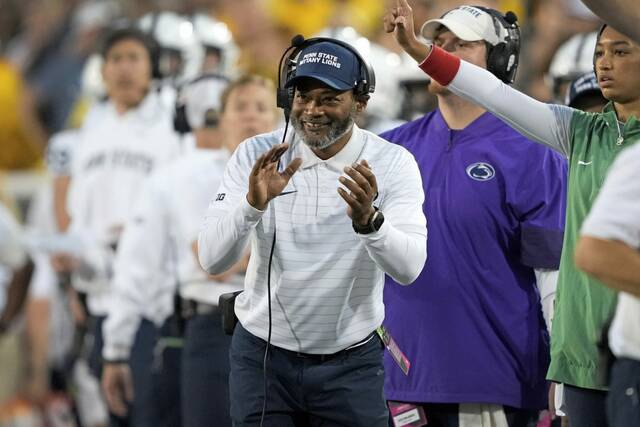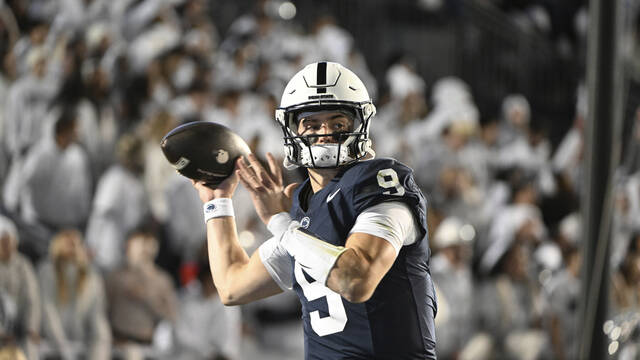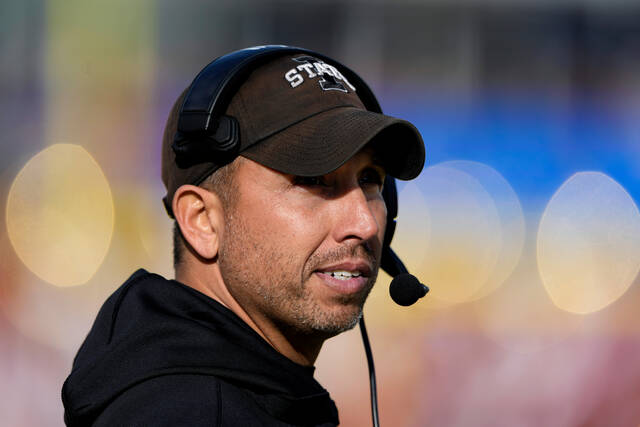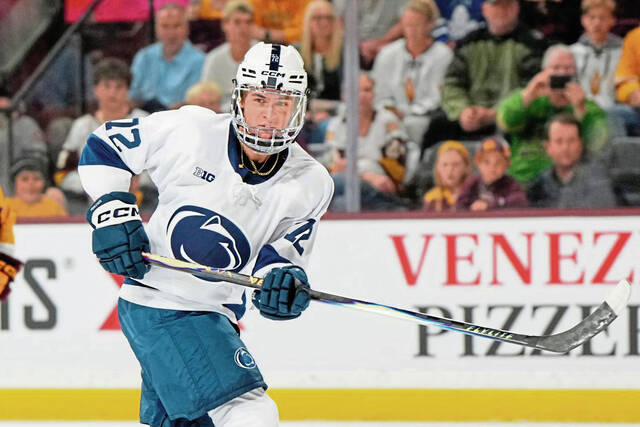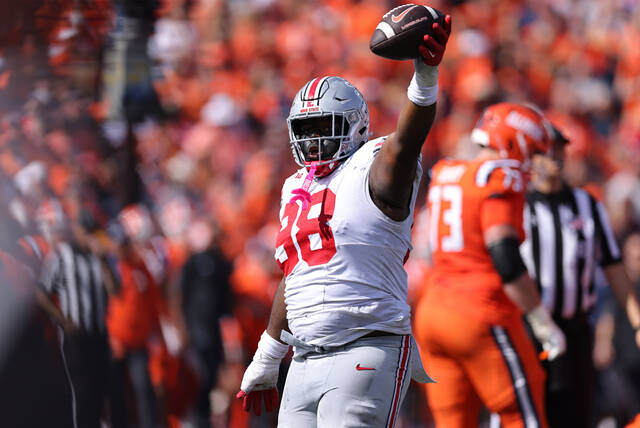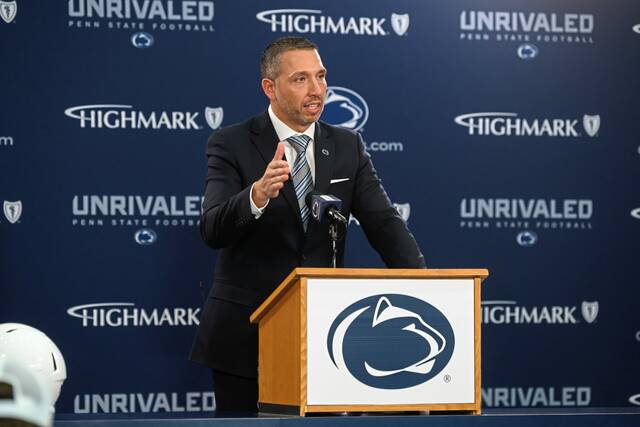Thursday marked the first day that the NCAA allowed student-athletes to profit off their name, image and likeness. Several athletes already announced plans or agreements to make money during their time in college — including some at Penn State.
Several football players, including linebackers Brandon Smith and Curtis Jacobs, defensive tackle Derrick Tangelo and quarterback Ta’quan Roberson all announced partnerships with Yoke Gaming, an application that allows people to play video games with or against athletes, and wrestler Roman Bravo-Young launched a raffle for his “RBY” branded shoe.
T-shirts bearing the image of starting QB Sean Clifford are available for online purchase through Quarterback Takeover. Clifford also launched a profile on the celebrity video-sharing platform Cameo.
Penn State also announced Thursday the launch of of its STATEment program — designed “to prepare students in the ever-changing college athletics landscape of Name, Image and Likeness (NIL).” The program is designed to educate students on building their personal brands and to foster entrepreneurial skills.
“We want to inspire our students’ entrepreneurial spirit and help them understand the impact their brand has using enhanced education as key part of STATEment,” Penn State athletic director Sandy Barbour said in a video the school posted to YouTube. “Penn State’s brand and 700,000 living alumni are huge advantages for our students as they explore these new opportunities to make an impact.”
While Thursday marked the first day that student-athletes could legally profit off of their name, image and likeness, more deals are expected to be announced in the coming weeks and months as athletes learn more about the opportunities available to them.
Nittany Lions freshman cornerback Zakee Wheatley has received a number of exploratory messages, according to his father, also named Zakee. The elder Wheatley believes that the new opportunities for student-athletes is something that should’ve existed from the onset of the NCAA. With that being said, he said he’s grateful to see his son be able to profit, just as any other college student would be able to.
“I think it’s great,” Wheatley Sr. said. “When these young athletes come in and go to college, they’re adults and to not be able to use who you are as a person or to be able to make money off of that is just crazy to me, personally. So, to me it’s not necessarily a win, but it’s something that should’ve already been there in my opinion.
“All of the other students on campus can go get a job, can work and go do whatever they want on their social media and their not restricted by it. I would certainly say that the athletes who are out there, not only meeting the academic standards but the athletic standards and bringing in revenue for the school, should at least be able to do the same.”



